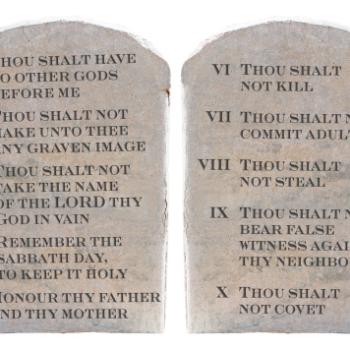Although we'll explore them in our next chapter, at their heart, what the historic creeds do is tell a story about God's desire for us and how we understand and experience God: We say that we believe in one God, the God who created the universe, whom we experience as the Father. We say that we believe that Jesus, who was called the Christ, the Anointed One, was his Son—sent to earth in human form to pursue us and draw us back into close relationship with God. We say that we believe that a Spirit, a third manifestation of God, was sent to comfort and instruct us. That's it as far as what Christians agree in the creeds to believe about God, but it seems to be enough; it seems to open the door for people to approach this story as they can and will.
Some people believe every word of the historic creeds literally; some approach them as a narrative that they believe whether or not they are literal fact; some say them as a regular profession of faith: these are the things I want to believe. In each case where people believe them with their hearts, however they understand them with their heads, they are professing their faith in God, and in Jesus as the one who is their path to God.
That's not to say that some people don't have trouble saying the creeds. In one of his many books, the liberal Episcopal bishop John Shelby Spong wrote that he had difficulty in saying the creeds because they contain so many supernatural elements, so many frankly unbelievable things. (I myself used to mumble parts of the creed that I couldn't yet accept in my heart, although now I speak out strong and clear.) Ultimately it seems to be less concerned with what is believable and more concerned with what I want to believe. The writer Kathleen Norris tells a story in her book Amazing Grace about a seminarian and a Greek Orthodox priest who seem to think of the creeds in opposing ways. The seminarian keeps asking the priest, "How am I supposed to say the creeds if I don't believe them?"
And every time he asks, the priest just says, "Keep saying them and you will believe them."[v]
In twelve-step spirituality there's a like understanding—"Fake it until you make it"—and a Christian version of this comes from Ignatius of Loyola: "Act as if you have faith, and faith will be given to you."
But in each case, I think it's important to know that people don't consider faith to be settled once and for all; rather, you "do" faith, you work at it, you try to understand what you believe and why.
I am trying to be a Christian.
That's part of the journey, and part of why—for what we're calling here "the other Christians"—a little doubt, a few hard questions, or even a big I-don't-get-it are not deal breakers. It's not all about assent; it is all about intent.
And it's also important to recognize that faith is often a challenge and sometimes difficult. The Bible is filled with contradictions: different portraits of God that seem hard to hold together, verses—or entire books—of the Bible that seem to stand in tension with each other. There are historical and cultural elements in the Bible that frighten and disturb us, such as the violence, the cultural chauvinism, the disrespect toward women.
Yet, as we'll discuss in a later chapter, there is a clear message that emerges from this tangle of stories: The Bible tells us that there is a God of creative love who desires a relationship with human beings, a God who is willing to forgive our mistakes, failures, and rebellion if we will only turn to God.
For many American Christians, this relationship is often transactional: If I believe what I'm supposed to believe, then God will do things for me in return. Even some progressive Christians fall into this trap, although for us it's often less about "orthodoxy" (believing the right thing) then it is about "orthopraxy" (doing the right thing). In either case, though, it becomes a matter of false belief.
Let's be straight on something that is true regardless of which transaction we believe in: If God is truly God—that is, the Creator and Ruler of the universe and all that—then we owe God everything. And God owes us nothing. God created us. God sustains our lives. God has told us that we can choose to have fullness of life in relationship and service.
To imagine that either by your belief or your actions you can induce the great power of the universe to act in a certain way is not faith: it's magic. So whether it's a megachurch pastor saying that if you believe hard enough or give enough, God will make you rich; or a Christian social justice advocate saying that if you do the right thing for others, God will do the right thing for you—any belief that we control or with which we influence God is equally flawed.





